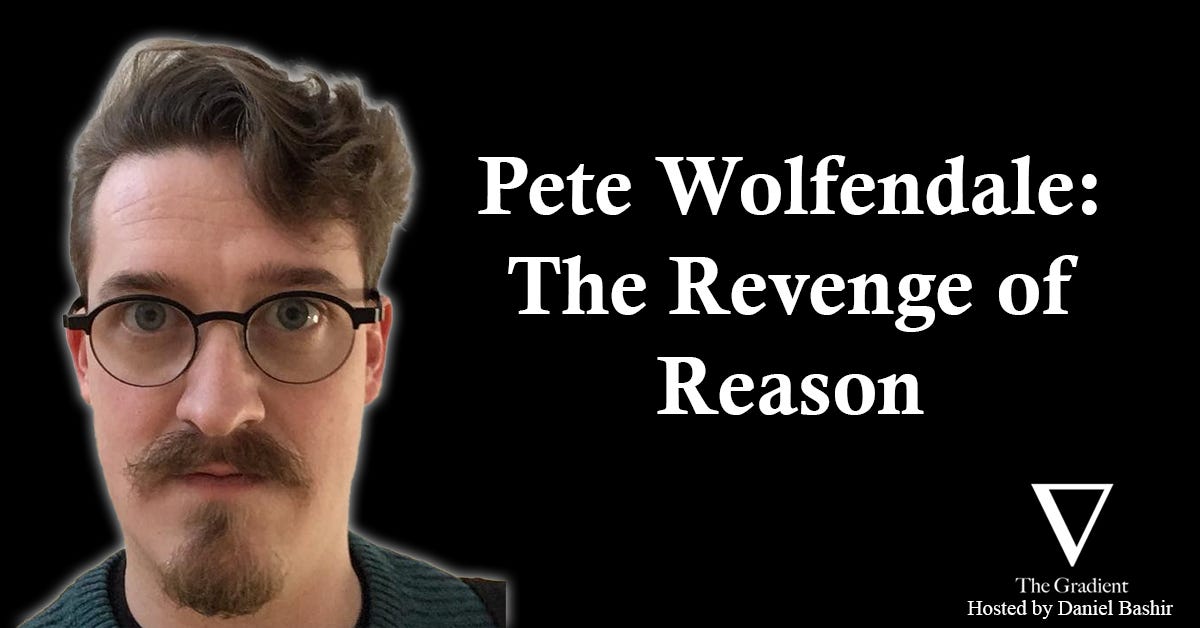Episode 134
I spoke with Pete Wolfendale about:
The flaws in longtermist thinking
Selections from his new book, The Revenge of Reason
Metaphysics
What philosophy has to say about reason and AI
Enjoy—and let me know what you think!
Pete is an independent philosopher based in Newcastle. Dr. Wolfendale got both his undergraduate degree and his Ph.D in Philosophy at the University of Warwick. His Ph.D thesis offered a re-examination of the Heideggerian Seinsfrage, arguing that Heideggerian scholarship has failed to fully do justice to its philosophical significance, and supplementing the shortcomings in Heidegger’s thought about Being with an alternative formulation of the question. He is the author of Object-Oriented Philosophy: The Noumenon's New Clothes and The Revenge of Reason. His blog is Deontologistics.
Find me on Twitter for updates on new episodes, and reach me at editor@thegradient.pub for feedback, ideas, guest suggestions.
I spend a lot of time on this podcast—if you like my work, you can support me on Patreon :) You can also support upkeep for the full Gradient team/project through a paid subscription on Substack!
Subscribe to The Gradient Podcast: Apple Podcasts | Spotify | Pocket Casts | RSS
Follow The Gradient on Twitter
Outline:
(00:00) Intro
(01:30) Pete’s experience with (para-)academia, incentive structures
(10:00) Progress in philosophy and the analytic tradition
(17:57) Thinking through metaphysical questions
(26:46) Philosophy of science, uncovering categorical properties vs. dispositions
(31:55) Structure of thought and the world, epistemological excess
(49:31) What reason is, relation to language models, semantic fragmentation of AGI
(1:00:55) Neural net interpretability and intervention
(1:08:16) World models, architecture and behavior of AI systems
(1:12:35) Language acquisition in humans and LMs
(1:15:30) Pretraining vs. evolution
(1:16:50) Technological determinism
(1:18:19) Pete’s thinking on e/acc
(1:27:45) Prometheanism vs. e/acc
(1:29:39) The Weight of Forever — Pete’s critique of What We Owe the Future
(1:30:15) Our rich deontological language and longtermism’s limits
(1:43:33) Longtermism and the opacity of desire
(1:44:41) Longtermism’s historical narrative and technological determinism, theories of power
(1:48:10) The “posthuman” condition, language and techno-linguistic infrastructure
(2:00:15) Type-checking and universal infrastructure
(2:09:23) Multitudes and selfhood
(2:21:12) Definitions of the self and (non-)circularity
(2:32:55) Freedom and aesthetics, aesthetic exploration and selfhood
(2:52:46) Outro
Links:
Book: The Revenge of Reason
Writings / References













